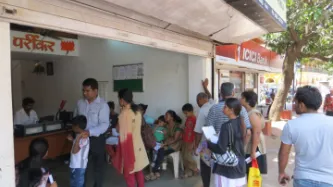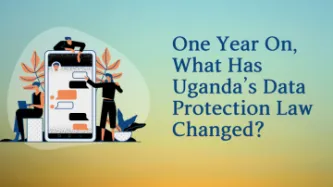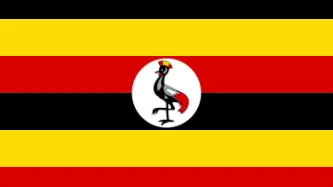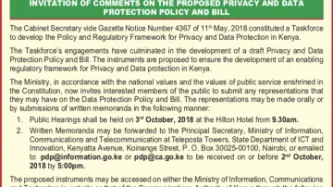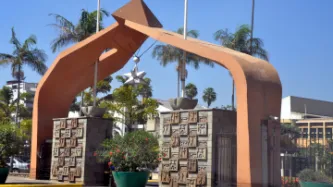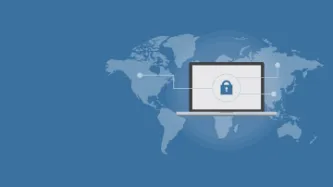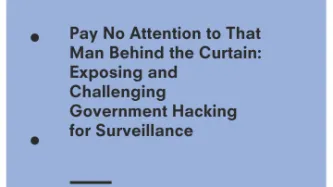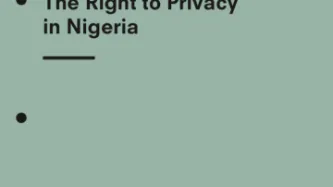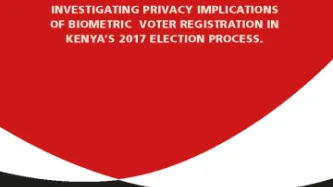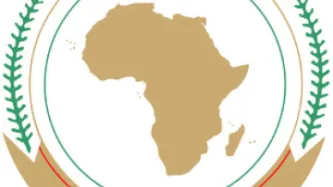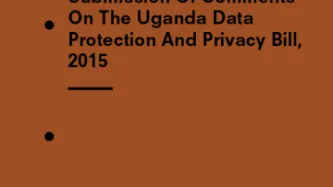Search
Content type: Examples
The Nigerian startup uLesson, which began by offering pre-recorded lessons on dongles, now delivers livestreamed interactive video classes to learners in a number of African countries as well as the US and UK. One of uLesson's investors is Tencent, which also backed at least three Chinese EdTech companies between 2018 and 2021 before China began requiring companies teaching compulsory primary and middle school subjects in China to register as "nonprofit institutions".Article: Chinese-backed…
Content type: Long Read
This piece was last updated in June 2021.
In many countries, access to social protection (such as welfare programmes or healthcare) is made conditional on producing a form of identification (“ID”). But obtaining a recognised and accurate ID is often a process riddled with discriminatory designs, bureaucracy and technical failures that prevent individuals from accessing the services they are entitled to. Even when people eventually get an ID, it might not accurately reflect who they are,…
Content type: News & Analysis
Uganda's Presidential election in January 2021 resulted in the incumbent President Museveni winning his sixth term in office, having held power for 35 years. The election took place amidst a global pandemic and the run up to election day was fraught. Violence left dozens dead and hundreds more arrested, including the opposition candidate Bobi Wine. Mass rallies and in person campaign meetings were banned due to Covid restrictions and political parties in Uganda were encouraged to conduct “…
Content type: News & Analysis
Unwanted Witness’ research into Safeboda highlighted the company’s failure to comply with some of the law's core data protection principles, with a number of implications for the exercise of data subject rights. The enforcement action against Safeboda by National Information Technology Authority, Uganda (NITA-U) requires the company to make fundamental changes to how they handle people's personal data in order to comply with the Data Protection and Privacy Act, 2019.
This first landmark…
Content type: Examples
On 2 March 2021, the Ministry of Health of Uganda unveiled its plan to immunize millions against COVID-19 starting on 10 March 2021.
The statement made by the Ministry of Health noted that "All persons eligible for vaccination will be required to provide a National Identification Card in the case of Ugandan citizens or a passport in the case of non-Ugandans".
Source: https://www.youtube.com/watch?v=asc5mQe0-3I
Publication: NTV News
Content type: Examples
Public-private partnership launches biometrics identity and vaccination record system in West Africa
In July 2020 a public-private partnership programme between the Bill Gates-backed GAVI vaccine alliance, Mastercard, and the AI identity authentication company Trust Stamp was ready to introduce a biometric identity platform in low-income remote communities in West Africa. The programme will integrate Trust Stamp’s digital identity platform into the GAVI-Mastercards “Wellness Pass”, a digital vaccination record and identity system powered by Mastercard’s AI and machine learning technology,…
Content type: Examples
In order to reopen borders and restart travel and trade, the East African Community is working with Switzerland-based The Commons Project, a public trust that builds digital services for public good in order to develop an app called CommonPass. The app, which will be designed in a July sprint, will allow travellers to share a recent COVID-19 test in a way that ensures the results cannot be falsified or counterfeited while preserving their personal privacy. The digital health passport will start…
Content type: Examples
The UN’s Economic Commission for Africa has launched the Africa Communication and Information Platform for Health and Economic Action thta will use AI and big data to provide two-way communication between citizens and health authorities. It will launch in 36 countries, with more to come as others sign up. The service will potentially research 80% of Africa’s mobile users at no cost to them, and will collect health information from individuals to allow authorities to identify local outbreaks and…
Content type: Case Study
The Ugandan government has a running contract with the Chinese tech giant, Huawei, to supply and install CCTV cameras along major highways within the capital, Kampala, and other cities.
While details of the contract remain concealed from the public, the Uganda Police Force (UPF) released a statement, simply confirming its existing business partnership for telecommunication and surveillance hardware, and software between the security force and Huawei. However, it is not clear whether the…
Content type: Examples
Our partners from Unwanted Witness in Uganda wrote a formal letter to the Ministry of Information Communications Technology and National Guidance demanding for strict observance of human rights for any intended use of surveillance technologies to fight COVID-19.
In a letter addressed to the Permanent Secretary Ministry of ICT, Hon. Vincent Bagiire and copied to Minister Judith Nabakooba, calls on government to respect its human rights obligation and restrain from exercising excessive…
Content type: Examples
Ten Ugandan police officers were charged with torture after allegedly caning 38 women and forcing them to swim in mud in Elegu, a town in the northern part of the country. Police have also arrested 23 people during a raid on a shelter for homeless lesbian, gay, bisexual and transgender youth, accused them of disobeying orders by remaining in the shelter, and charging them with a negligent act likely to spread infection or disease.
Source: https://www.bbc.co.uk/news/world-africa-52214740…
Content type: Examples
The Uganda Communications Commission announced on March 22 that it would crack down on people spreading fake videos and misinformation about the novel coronavirus through social media, noting that this behaviour is illegal under the Computer Misuse Act, the Data Protection and Privacy Act, and other penal laws. UCC went on to warn in a public notice that it would arrest and prosecute violators.
Sources:
http://www.china.org.cn/world/Off_the_Wire/2020-03/23/content_75847935.htm
https://twitter…
Content type: News & Analysis
This piece was originally published by Unwanted Witness here.
Today marks exactly one year since Uganda passed its data protection law, becoming the first East African country to recognize privacy as a fundamental human right, as enshrined in Art 27 of the 1995 Uganda Constitution as well as in regional and International laws.
The Data Protection and Privacy Act, 2019 aims to protect individuals and their personal data by regulating processing of personal information by state and non-state…
Content type: Examples
In February 2019 Gemalto announced it would supply the Uganda Police Force with its Cogent Automated Biometric Identification System and LiveScan technology in order to improve crime-solving. LiveScan enables police to capture biometric data alongside mugshots and biographical data. CABIS speeds up the biometric matching process by mapping distinctive characteristics in fingerprints, palm prints, and facial images. The Ugandan police will also pilot Gemalto's Mobile Biometric Identification…
Content type: Case Study
Photo by Roger H. Goun
Chloe is an investigative journalist working for an international broadcast service; we will call the TV show she works for The Inquirer. She travels around the world to work with local journalists on uncovering stories that make the headlines: from human trafficking to drug cartels and government corruption. While her documentaries are watched by many and inspire change in the countries she works in, you would not know who Chloe is if we were to tell you her real name.…
Content type: State of Privacy
Table of contents
Introduction
Right to Privacy
Communication Surveillance
Data Protection
Identification Schemes
Policies and Sectoral Initiatives
Introduction
Acknowledgement
The State of Privacy in Uganda is the result of an ongoing collaboration by Privacy International and Unwanted Witness.
Key privacy facts
1. Constitutional privacy protection: The constitution contains an explicit protection of the right to privacy (Art. 27).
2. Data protection law: There is no…
Content type: Advocacy
In parallel to the legislative process initiated by the Kenya Senate in July 2018, a Task Force constituted by the Ministry of Information, Communication and Telecommunication developed a draft Data Protection Bill which it published for consultation in May of this year.
Privacy International and its Kenya Partners, the National Coalition of Human Rights Defenders – Kenya (NCHRD-K), the Centre for Intellectual Property and Information Technology (CIPIT) are pleased to have had the…
Content type: News & Analysis
Our intervention comes on the back of mounting evidence that the South African state’s surveillance powers have been abused, and so-called “checks & balances” in RICA have failed to protect citizens’ constitutional right to privacy.
Among our core arguments are:
That people have a right to be notified when their communications have been intercepted so that they can take action when they believe their privacy has been unlawfully breached. Currently RICA prevents such notification, unlike…
Content type: Advocacy
This photo originally appeared here.
For years, Privacy International and our partners in Kenya have been promoting the right to privacy in Kenya through research and investigations into government and private sector policies and practices and advocating for the adoption and enforcement of the strongest data protection and privacy safeguards.
The need for Kenya to adopt a comprehensive data protection framework (in addition to strengthening privacy protections in other legislation) has always…
Content type: News & Analysis
As the international cyber security debate searches for new direction, little attention is paid to what is going on in Africa. Stepping over the remains of the UN Group of Governmental Experts, and passing by the boardrooms of Microsoft struggling to deliver their Digital Geneva Convention, African nations are following their own individual paths.
Unfortunately, these paths increasingly prioritise intrusive state surveillance and criminalisation of legitimate expression online as…
Content type: Advocacy
Privacy and security are both essential to protecting individuals, including their autonomy and dignity. Undermining privacy undermines the security of individuals, their devices and the broader infrastructure. People need privacy to freely secure themselves, their information, and fully enjoy other rights.
A growing number of governments around the world are embracing hacking to facilitate their surveillance activities. When governments hack for surveillance purposes, they seek to…
Content type: Advocacy
This Universal Periodic Review (“UPR”) stakeholder report is a submission by Privacy International and Paradigm Initiative.
Together Privacy International and Paradigm Initiative wish to bring their concerns about the protection and promotion of the right to privacy in Nigeria before the Human Rights Council for consideration in Nigeria’s upcoming review at the 31st session of the Working Group on the Universal Periodic Review.
Content type: Report
The use of biometric technology in political processes, i.e. the use of peoples’ physical and behavioural characteristics to authenticate claimed identity, has swept across the African region, with 75% of African countries adopting one form or other of biometric technology in their electoral processes. Despite high costs, the adoption of biometrics has not restored the public’s trust in the electoral process, as illustrated by post-election violence and legal challenges to the results of…
Content type: News & Analysis
Image was found here.
As part of Privacy International’s mission, we aim to take the issues emerging from our research and that of our partners to new spaces of debate and to the attention of stakeholders at the national, regional and international level.
In April 2018, Privacy International was able to engage for the first time with the African Commission on Human and People's Rights (ACHPR) at its 62nd Ordinary Session, which took place in Nouakchott, Mauritania.
The right to privacy does…
Content type: Advocacy
At the core of data protection debates, there is a power play between empowering individuals to control their data and empowering those who use (or want to) use their data. By regulating data processing, it provides avenues for individuals to exercise their rights if there is any unlawful interference in this power play.
It is crucial for any regulatory framework to be centred around the protection of human rights, autonomy and dignity, and therefore essential to ensure that…
Content type: News & Analysis
Written by the National Coalition for Human Rights Defenders - Kenya and Privacy International
05:00: Mercy’s alarm goes off. She gets out of the warmth of the bed into the piercing morning chill. She switches on the bedside lamp and reaches for her Bible. She then checks in onto her devotional group on Facebook, as she does every morning. Her Facebook app keeps track of her location, and the time she wakes up.
05:24: She steps into the shower and prepares for her day in the…
Content type: Press release
Below is a joint statement from Privacy International and Bytes for All.
This Friday, 27 September, marks the conclusion of the 24th session of the UN Human Rights Council, a session which has, for the first time, seen issues of internet surveillance in the spotlight. Privacy International and Bytes for All welcome the attention given at the Human Rights Council to this issue. However, we are concerned about developments which took place that threaten privacy rights and freedom of…
Content type: News & Analysis
Overview
CIPIT is currently investigating how the privacy of Kenyan citizens was affected by the use of biometric data during the just concluded 2017 general and repeat elections. The IEBC is mandated by law to register voters, verify their registration details and conduct elections. Accordingly, the IEBC is the custodian of the public voter register. There have been reports that individuals received SMS texts from candidates vying for various political seats during the campaign period of the…
Content type: Long Read
The battle for Kenyan voters’ allegiance in the 2017 Presidential election was fought on social media and the blogosphere. Paid advertisements for two mysterious, anonymous sites in particular started to dominate Google searches for dozens of election-related terms in the months leading up to the vote. All linked back to either “The Real Raila”, a virulent attack campaign against presidential hopeful Raila Odinga, or Uhuru for Us, a site showcasing President Uhuru Kenyatta’s accomplishments. As…
Content type: Press release
A new investigation published today by Privacy International reveals the role of an American data-based digital advertising company in the highly divisive online re-election campaign of Kenyan president Uhuru Kenyatta.
In the run-up to Kenya's presidential election in August 2017, paid advertisements for two mysterious sites dominated Google searches for election-related terms and flooded Kenyans' social media feeds. All linked back to either 'The Real Raila', a virulent attack campaign…
